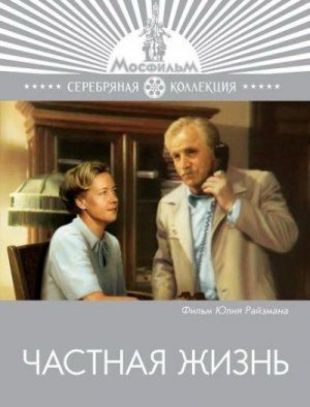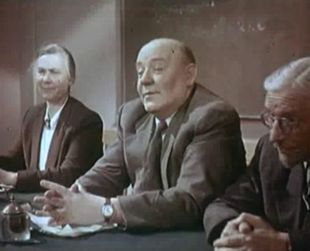If not the key figure in Soviet/Russian cinema, Yuli Raizman certainly ranks one of the most its enduring filmmakers. He was involved in his tumultuous country's cinema from its early silent years into the post-perestroika 1990s. The Moscow-born Raizman began his career at age 21, working as a literary consultant for the German-backed film production and distribution company Mezhrabprom-Russ following studies in literature at Moscow University. In 1925, Raizman acted in Pudovkin's Chess Fever. He trained to be a director by working as an assistant director under Konstantin Eggert and the great silent filmmaker Yakov Protazanov, making his own directorial debut with The Circle (1927). He followed it up with Katorga/Penal Servitude (1928). Both were silent films, as was Raizman's third effort, a semi-documentary account of Komsomol youths attempting to provide remote irrigation to a village, The Earth Thirsts (1930); a soundtrack of music and special effects was added the following year, making it the Soviet Union's first official sound film.
Raizman joined the powerful Mosfilm, Moscow's biggest studio, in the 1930s, becoming one of his country's most popular filmmakers, thanks to such efforts as Aviators (1935). He collaborated with Yevgeny Gabrilovich in 1937, directing The Last Night. This tale of the 1917 Moscow uprising was a hit and won the Paris International Exhibition Grand Prize in 1937. Inspired by their success, the two would continue collaborating for 40 years. Of all his many films, Raizman's best and most influential remain Mashenka (1942) and Moscow Sky (1944). The former was important for being a romance set inside a war story. In addition to his fiction films, Raizman proved himself an excellent documentarian, with such outings as Berlin (1945) and On the Truce With Finland. During the Soviet years, he helped promote the official party view while heading up an extraordinarily creative group at Mosfilm. Following Stalin's death, Raizman's films still toed the Communist Party line, but without as much flag-waving fervor, as can be seen in The Communist (1958) and Your Contemporary (1968). Over his extensive career, he won many awards for his work. Last Night (1937) won the first U.S.S.R. State Prize, as did seven other Raizman films (this made him one of the Soviet Union's most decorated citizens), while Cavalier of the Golden Star won him the main award at the Karlovy Vary Film Festival (1952).


